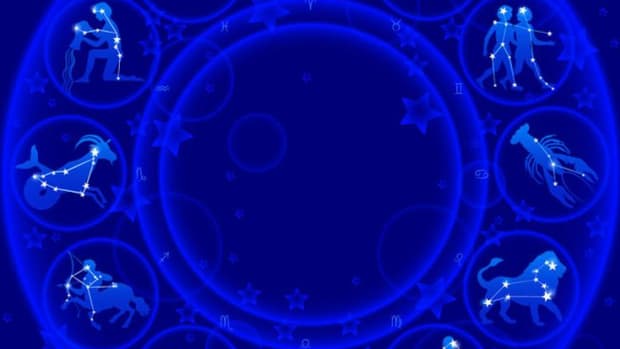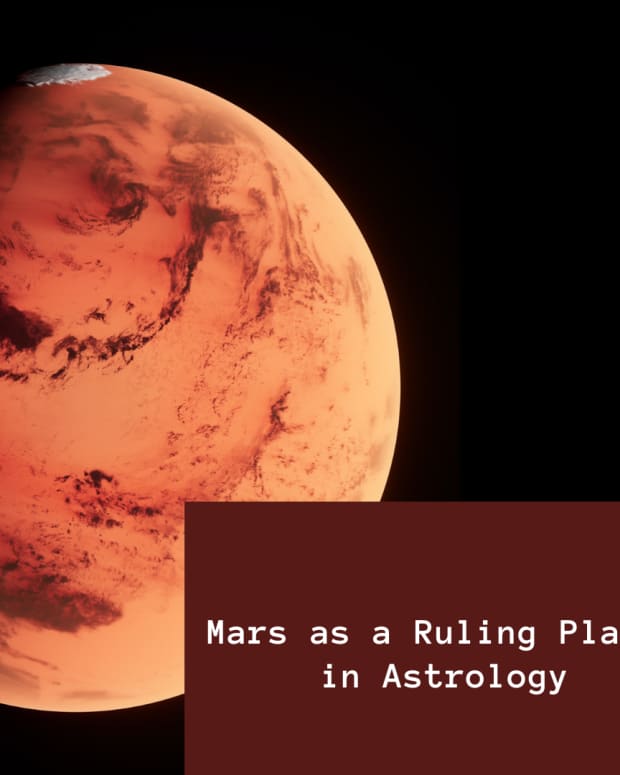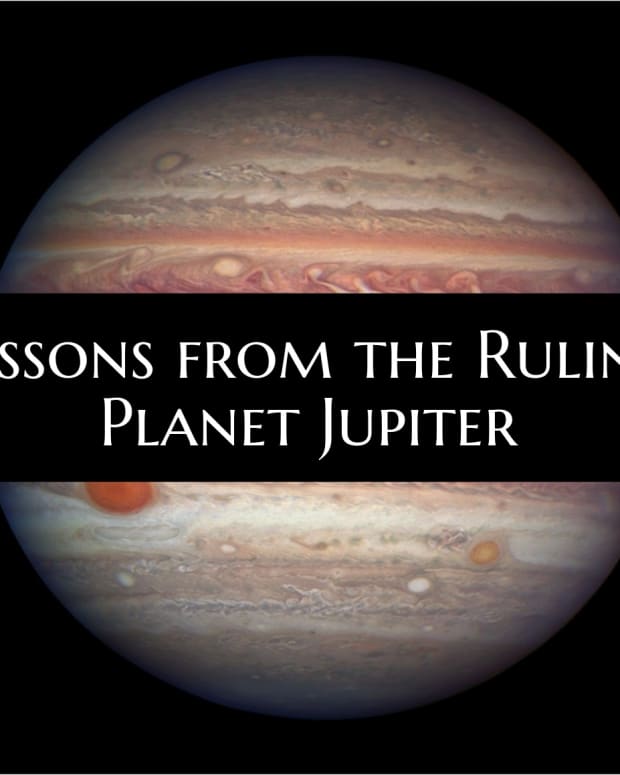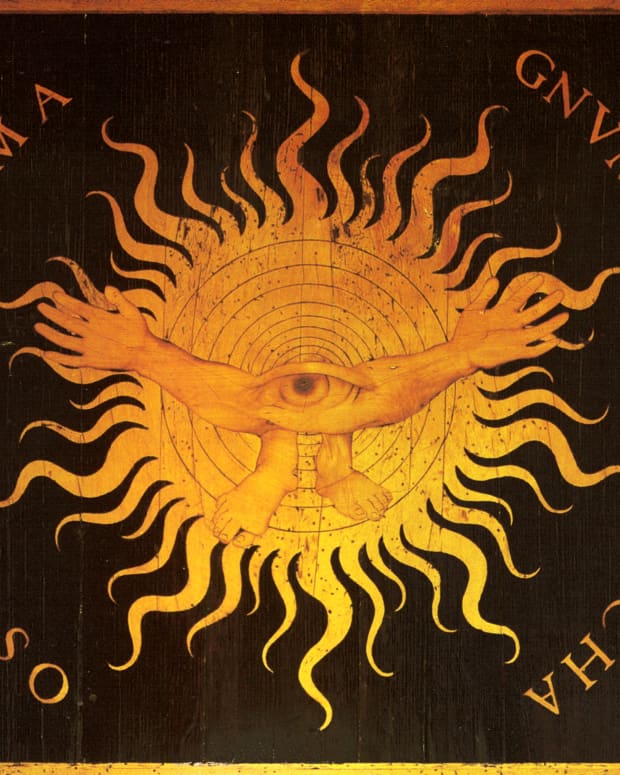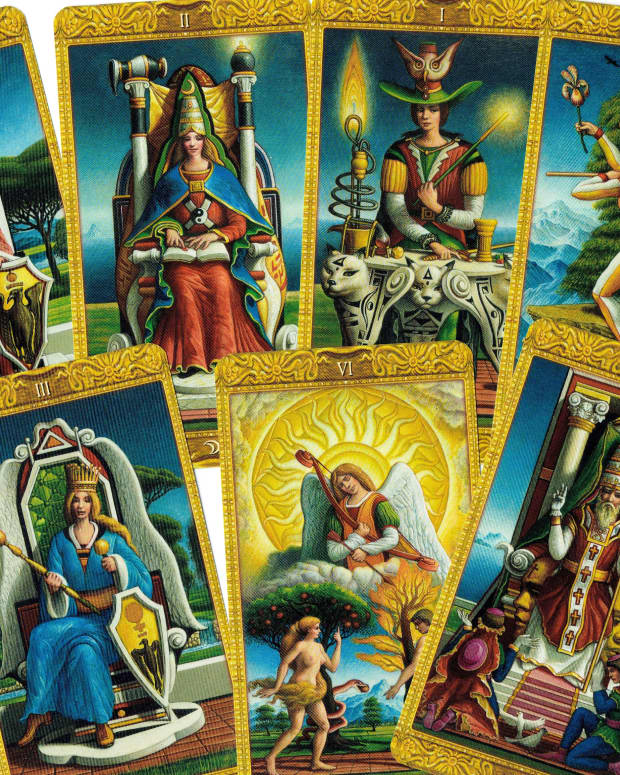Everything You Need to Know About the Ruling Planet of Neptune
Andrea has a background in Myers-Briggs and Western astrology. She mostly writes about relationships.
Lessons From Neptune as a Ruling Planet
In astrology, those under Neptune's influence have a depth that is hard for others to see or grasp. The planet rules the sign of Pisces, the last sign of the zodiac and the mutable sign of water. Those with a lot of Pisces in their natal chart are considered dreamy, intuitive, mysterious, imaginative, wise, amicable, and maybe a little delusional.
Some Basics About Neptune's Influence
- Neptune is the planet of spiritual development.
- An individual can grow their spirit in a community or solitude.
- If someone appears innocent or naive to you, that influence is likely coming from Neptune.
Those who are ruled by this planet often come across as kind, gracious, and empathetic. Pisces has the characteristics of Christ, and many of the symbols used to depict Jesus are overlapped with Pisces (e.g., twin fish, the feet, and water itself).
Neptune teaches people how to find freedom from the demands of their egos. There are basically two religions in this world: charitas or avarice. Charitas is a Latin word for love, benevolence, offering, and charity. Charitas is about loving others as yourself, caring about the needs of others, and finding a sense of humility. Avarice is all about greed, selfishness, and focusing solely on oneself.
Neptune's orbit in the heavens is slow. The further away a planet is from the Sun, the longer it takes to complete an orbit. It takes a long time to reach spiritual fulfillment, and people don't typically switch from avarice to charitas in a single night. It takes consistent work and action to show you care about others.
The outer planets also tend to influence not just a person but whole generations. The tones of Neptune can be felt by a group of people.
Neptune's Influence Examined
Faith and Hope
Those ruled by Neptune have childlike faith, and they can find the bright light in the darkest of times. Pisces has a deeper, richer understanding of life than the other signs. Pisces wants to help people see the light, the possibilities in our cosmos, and show that every individual has a purpose. There is meaning to be found in both the greater scale of things and the minuscule, more intimate interactions.
Bottom line: Pisces types can be amazingly good people. They have wonderful imaginations that can take us to extraordinary places. They can also spiral out of control and fall into despair because the world is so different from the magical place they want for all of us.
Spirituality and Intuition
If you have Pisces in your Sun, Venus, or Neptune, you may have a certain innocent vibe that people notice. You are kind and smart and may be perceived as angelic, considerate, or conscientious. These people tend to lead fulfilling lives. Those with the influence of Pisces feel deeply connected to the universe.
People influenced by Neptune are risk-takers. In ancient astrology, Pisces and Sagittarius were assigned to the planet Jupiter — the planet of risk-takers and luck. When more planets were discovered, Pisces was assigned to Neptune.
Pisces types have a great deal of intuition, so sometimes in social situations, they know exactly what to do with only a little bit of information. They're amazing at reading people, and they know how to bless others and be kind.
Those influenced by Pisces need to be careful about their dreams as they can sometimes live too much in an ideal world in their heads and have unrealistic ambitions. Disappointment will follow for those whose dreams and goals are too far-fetched. Their spirituality can make them so laser-focused on abstract concepts that they don’t take care of practical and plain things like bills, eating healthy food, and sleeping at a regular time. They need to learn to care about the mundane as well as the celestial.
Pisces and Aquarius are kindred spirits; they tend to get along with each other. They both feel like oddballs as they bring their unique energies into the zodiac. These two signs are trying to tell the others that there is more to life than what we can see and to not despair because life finds a way.
Facts About the Planet Neptune
Neptune is the 8th planet from the Sun. It is more than 30 times as far from the Sun as Earth. Neptune was the first planet whose existence was predicted — before it was actually discovered — through math.
Read More From Exemplore
- NASA's Voyager 2 is the only spacecraft to have visited Neptune up close. It flew past it in 1989.
- Neptune is about four times wider than Earth.
- Neptune takes about 16 hours to rotate once and about 165 years to orbit the Sun.
- The planet is considered an ice giant.
- Its atmosphere is mostly made up of molecular hydrogen, atomic helium, and methane.
- Neptune has 14 moons, which are named after sea gods and nymphs in Greek mythology.
- Neptune cannot support life . . . at least, as we know it.
- Sometimes Pluto is closer to the Sun than Neptune.
- Neptune is the windiest planet in the solar system. Winds whip up clouds of frozen methane across the planet at speeds of more than 1,200 miles per hour.
- The planet has six rings.
- It was discovered on September 2nd, 1846, by Urbain Le Verrier and Johann Galle.
- The most interesting moon of Neptune is Triton, a frozen world covered in nitrogen ice and dust particles. It was likely captured by the gravitational pull of Neptune.
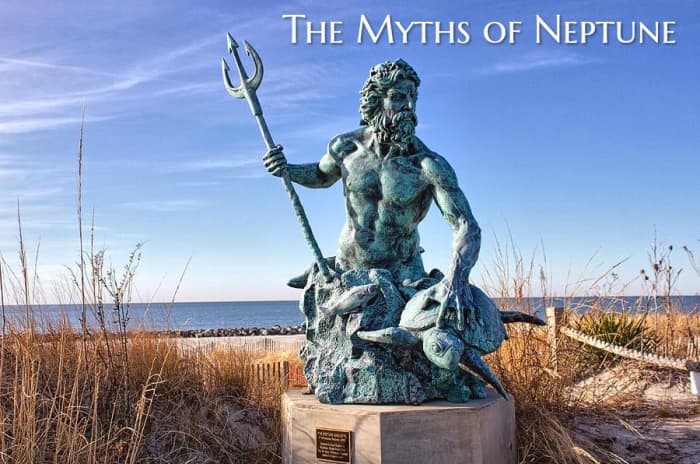
Neptune was a major god in Roman mythology and the brother of Jupiter and Pluto. Neptune ruled the water. A festival was celebrated in his name in July to bring more water during summer.
Neptune in Roman Mythology
Neptune is the Roman god of water and the sea and is the counterpart of the Greek god, Poseidon. Neptune is the brother of Jupiter (ruler of the heavens) and Pluto (ruler of the underworld).
Interesting Notes About Neptune (the God)
- His symbols include horses, tridents, and dolphins.
- His festivals were called Neptunalia and Lectisternium.
- His parents were Saturn and Ops.
- His siblings were Jupiter, Pluto, Juno, Ceres, and Vesta.
- His wife was Salacia (the goddess of saltwater).
- Hinduism equivalent: Varuna, Apam Nappat.
- Canaanite equivalent: Yam
- Irish equivalent: Nechtan
- Depictions of Neptune are heavily influenced by Hellenistic conventions.
- Neptune was likely associated with freshwater springs before the sea at large.
- He was considered the keeper of the horses. He invented the chariot with Minerva.
Romans regarded Neptune on the same level as Mars, Janus, Saturn, and even Jupiter.
Festival Time
Neptunalia was celebrated at the height of summer on July 23rd. People would ask for rain during the summer's drought and excessive heat. Neptunalia was devoted to works of conservation and draining of superficial waters. People would clear unkempt brush by cutting on the 19th, then uprooting and burning would take place on the 21st.
During the festival, people would sit under branch huts in the woods between the Tiber and the Via Salaria and drink spring water to get away from the heat. It was a time for socializing, merrymaking, and silliness.
Temple & Worship
In Rome, Neptune had just one temple—the Basilica Neptuni. It was near the Circus Flaminius, the Roman racetrack, in the southern part of the Campus Martius. The temple was built to honor the naval victory of Actium and had a famous sculpture of a marine group by Scopas Minor.
Bulls were a common sacrifice in Roman times; people would offer them to Neptune, Mars, Apollo, and Jupiter. The type of offering implies a connection between the deity and the mortal realm.
In mythology, Neptune represented the calm and tranquil aspects of water. His wife, Salacia, represented overbearing, gushing, and violent waters—she essentially is considered a symbol of lust and desire.
Etymology
There is a great deal of debate about Neptune's name, and it might give you a headache to read all the different scholarly theories about its origins. The name may come from the word "nuptus," which refers to the act of "covering" or "veiling." It could also be linked to the word "nuptiae," meaning the "marriage of Heaven and Earth." Meanwhile, the etymology of Neptune's wife's name (Salacia) is from the word "salum," meaning "sea."

Neptune was the god of the sea in Roman mythology. Poseidon was the god of the sea in Greek mythology. The god was also known for spring waters, earthquakes, and horses. He carried a trident with him.
Before There Was Neptune, There Was Poseidon
In Greek mythology, Poseidon was one of the 12 Olympians. He was the god of the sea, storms, earthquakes, and horses. He was worshiped as a chief deity in Pylos and Thebes.
In myths in Arcadia, Poseidon was related to Demeter and her daughter Persephone. With a strike of his trident, he created springs. He was the protector of sea travelers and Hellenic cities. Homer's works suggest Poseidon became the lord of the sea after the defeat of his father, Cronus, by Zeus.
In theIliad, Poseidon supports the Greeks against the Trojans during the Trojan War. In theOdyssey, during the sea voyage from Troy to Ithaca, the Greek hero Odysseus angers Poseidon by blinding his son, the Cyclops. Poseidon then pushes him into a storm, destroys his ship, and creates a ten-year delay.
The origins of Poseidon's name are unclear. There is some evidence that Poseidon was first worshiped as a horse. Other scholars believe he was a sea god first and that he became the god of earthquakes because the Greeks believed the cause of earthquakes was the erosion of rocks by the water. They didn't know about tectonic plates.
Poseidon, rather than Zeus, is seen as the major catalyst of events in theOdyssey. In Athens, Poseidon was only second to Athena in importance. In Corinth, he was the chief god.
Poseidon was attributed to the creation of new islands and providing calm and soothing waters. When offended or ignored, he would strike the ground with his trident and cause water to burst from the earth. As a result, Poseidon was blamed for drownings and shipwrecks, so sailors would pray to him for safe travels or offer horses as a form of sacrifice.
This article is accurate and true to the best of the author’s knowledge. Content is for informational or entertainment purposes only and does not substitute for personal counsel or professional advice in business, financial, legal, or technical matters.
©2021安德里亚•劳伦斯




